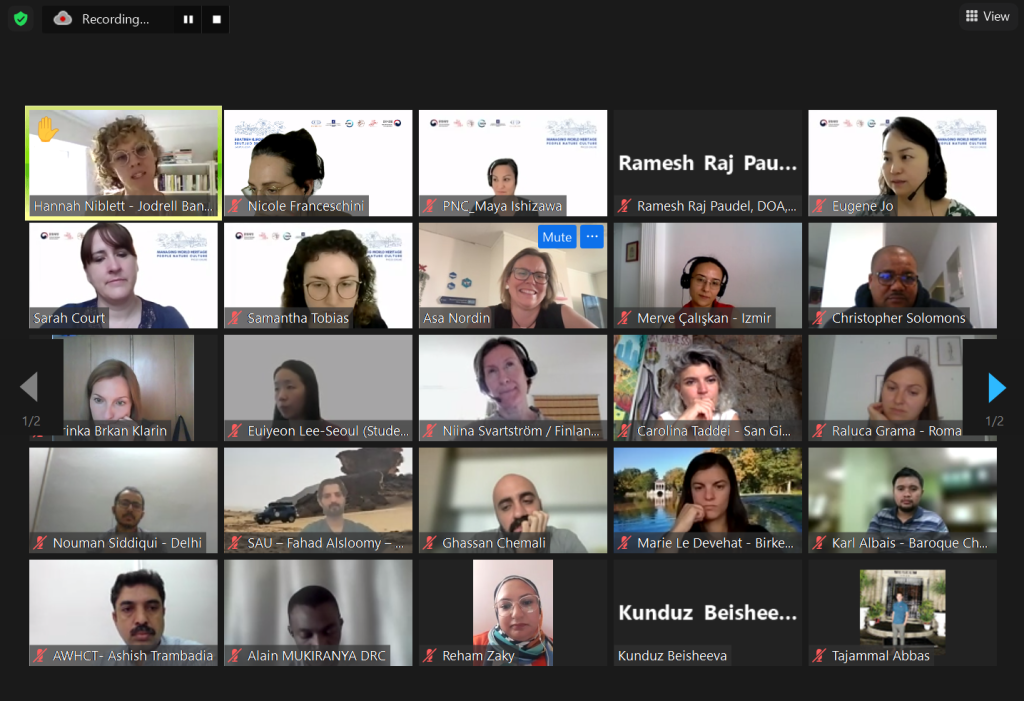This year's third edition of our People Nature Culture (PNC) course brought together 22 World Heritage site managers and practitioners from 19 countries. This international flagship foundational course of the ICCROM-IUCN World Heritage Leadership (WHL) programme has become a hallmark event of learning and exchange between natural and cultural World Heritage places.

Last week concluded the ICCROM-IUCN World Heritage Leadership (WHL) programme flagship course, ‘Managing World Heritage: People Nature Culture,’ also called PNC23. The course, held from 19 to 29 June 2023, was the third of five PNC courses planned for 2023 and held in various languages to accommodate a wide range of World Heritage site managers and practitioners. PNC courses engage participants in learning about, exchanging and discussing heritage management practices worldwide. In the June PNC course, we were joined by 22 World Heritage site managers and practitioners from 19 countries - Bahrain, China, Croatia, Congo, Egypt, Finland, India, Italy, Kyrgyzstan, Nepal, Pakistan, the Philippines, Romania, Rwanda, Saudi Arabia, South Africa, Tunisia, Türkiye and the United Kingdom.
 Screenshot of some participants in PNC 2023
Screenshot of some participants in PNC 2023Based on the World Heritage management framework developed as part of the forthcoming manual Managing World Heritage, PNC23 takes participants on a journey to discover how to enhance the effectiveness of World Heritage management through place-based and people-centered approaches that aim at recognizing and conserving the multiple heritage values of heritage places in their wider social, environmental and economic contexts.
Site managers and practitioners from George Town (Malaysia), Kulangsu (China), Laponia (Sweden) and Rome (Italy) helped facilitate the course. These resource people used their heritage places to showcase the application of different components of the course, from enhanced understanding of the heritage place to implementation of inclusive governance arrangements, establishment of monitoring mechanisms and improved management systems.
Over the years, PNC courses have connected site managers, heritage practitioners and researchers working at World Heritage properties around the world. This network has fostered exchanges of knowledge and know-how, contributing to the establishment of a wider community of practice that collaborates to solve shared challenges. The PNC course reveals valuable insights for WHL to continuously improve capacity-building efforts by gathering feedback and knowledge from those working on the ground.
About the People-Nature-Culture course
The PNC course aims at providing an overview of how the management and conservation of heritage places can give them a dynamic and mutually beneficial role in society today and long into the future. This stems from an increasing recognition that heritage places are cared for, used and enjoyed by a wide array of people.
The course approaches natural and cultural heritage conservation as an interrelated and interdependent concept. It provides support to promote quality management at World Heritage properties and other heritage places through overcoming an artificial separation of nature and culture.
PNC is organized by the ICCROM-IUCN World Heritage Leadership (WHL) programme in close collaboration with the Korea National University of Cultural Heritage (KNUCH) and the support of the Cultural Heritage Administration (CHA) of Korea.
